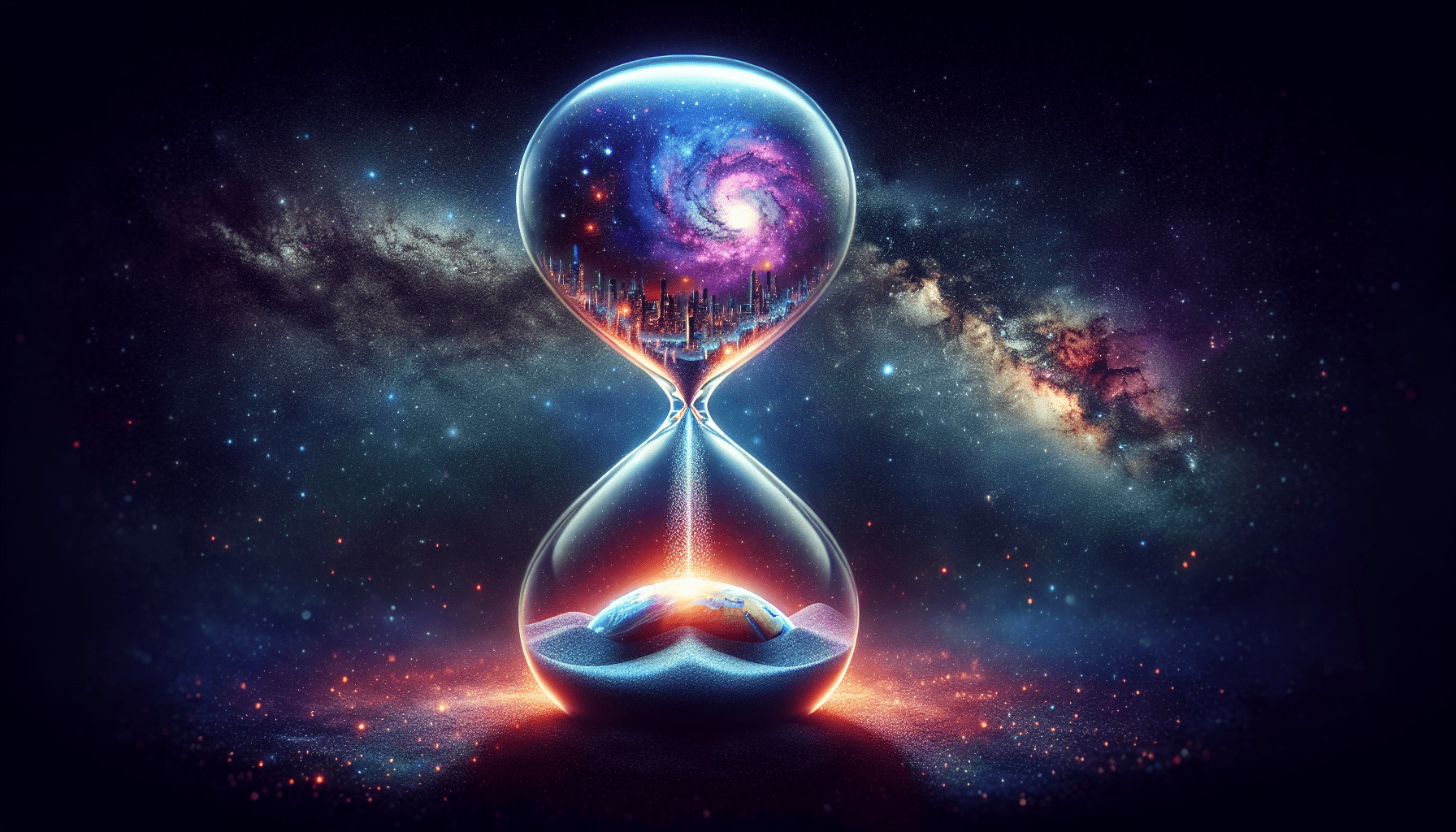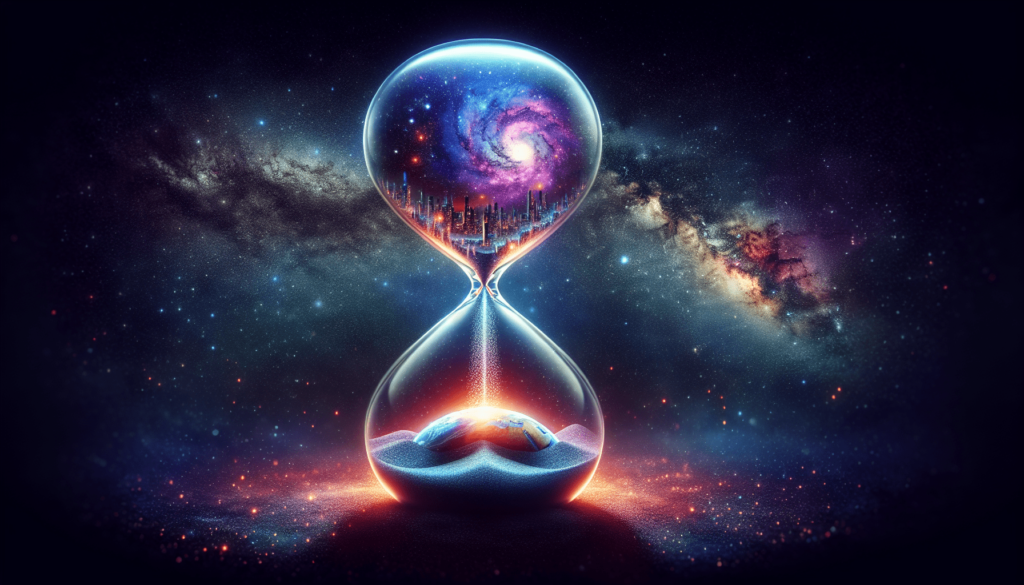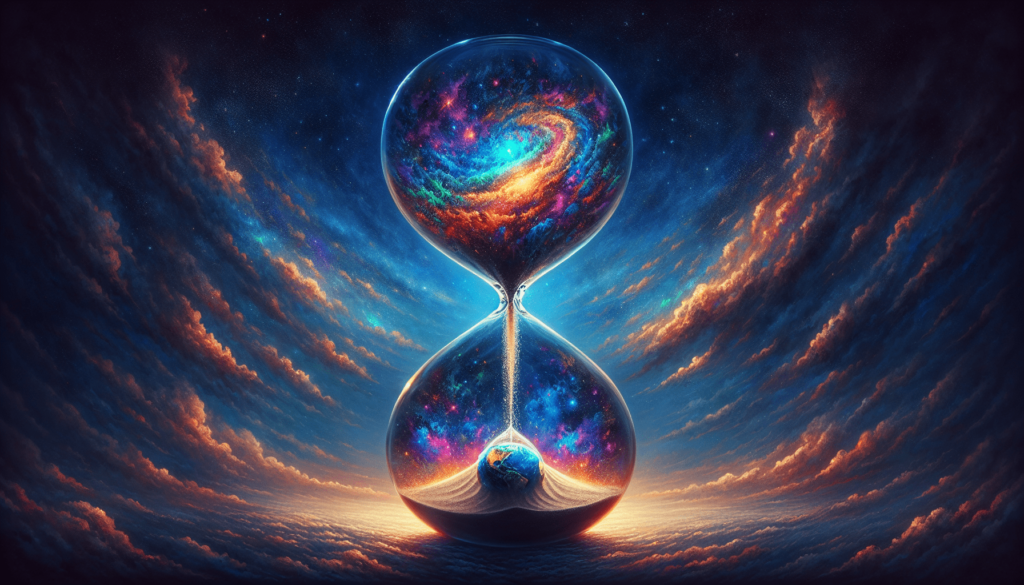
Have you ever found yourself pondering the fate of our little blue planet and wondering about those folks who always seem to think it’s all doomed? Seriously, what’s the name for people who think the world is going to end? Spoiler alert: they’ve been around for quite a while, and they’re not as rare as you might think. But before we label them with any particular term, let’s dive into the fascinating world of apocalyptic beliefs and the people who hold them.
The Various Flavors of Apocalyptic Belief
The belief in the impending end of the world has been around since—well, since the world began, practically. Humanity has always had a knack for thinking it’s on the brink of something cataclysmic. Here’s a look at some ways people have anticipated the world’s demise:
Religious Apocalyptic Beliefs
From ancient civilization to modern day, many religious traditions have predicted an eventual end to the world. Through divine revelation or sacred texts, such interpretations often outline a scenario where a superior force or deity brings about an end to the naughtiest of nations and saves the virtuous.
Take Christianity, for instance, with its Book of Revelation. This text is as intriguing as it is confusing, filled with strange beasts, seals, and a colossal showdown between good and evil. Believers who fixate on these end-times prophecies might be called “millennialists” or “eschatologists.”
However, Christianity isn’t the only religion with apocalyptic notions. Hinduism has its own cyclical worldview, where humanity is now living in the Kali Yuga, a dark age that will eventually close, followed by renewal. And let’s not forget the Norse and their Ragnarök—a not-so-friendly tale of chaos, involving battles that sound an awful lot like those superhero movies we can’t get enough of.
Secular Doomsday Scenarios
Not everyone waiting for the world’s end is doing so for religious reasons. There’s a whole other category of folks—let’s call them “secular doomsday preppers”—who have a wealth of non-religious theories.
From climate change to nuclear annihilation, these believers usually rely on scientific or pseudoscientific premises. Sometimes they stockpile food and setup underground bunkers, just in case. Have you seen those TV shows about preppers? It’s an interesting mix of focus and frenzy, preparing for cataclysms most of us avoid even imagining.
Historical Times of Panic
Every era has its own unique flavor of doom. The turn of the millennium, for instance, was especially rich with doomsday predictions. Remember Y2K? A lot of people thought our computers would fail, leading to the breakdown of modern society. Notes of dread have also sung throughout other periods, like the Black Plague during the 14th century in Europe or, more recently, 2012, which got its own Hollywood movie—thank you, Mayan calendar.
Modern Technology and the End Times
In today’s world, technology sprouts at such a rapid pace that it provides a playground for prophetic imaginations. It’s like every new invention or event becomes a potential harbinger of doom. With the rise of AI and other advanced technologies, fears concerning machine rebellion—think Skynet from “The Terminator”—or other technological crises are now at the forefront.
Discussions oscillate between the optimistic and the catastrophic. One moment, we’re excited about speaking to virtual assistants; the next, we’re convinced they’re plotting to overthrow us. Isn’t it fascinating how innovation and anxiety often dance together in our minds?
Naming the End-Timers
Now that we’ve sampled the buffet, let’s hone in on what to call those fervently hooked on world’s-end scenarios. These folks aren’t exactly a monolithic group. The names vary depending on their beliefs and the root of their predictions.
Apocalyptics
Generally speaking, an “apocalyptic” is someone who believes in and often anticipates an ending—apokálypsis, after all, means “unveiling” in Greek. However, because of its historical connotations, this term is more closely aligned with religious end-time beliefs, enveloping narratives where divine intervention is at play.
Millennialists
When a divine or supernatural end doesn’t just wrap the whole shebang up but promises a fresh start—a new heaven and earth, often after a thousand-year reign of peace—you’re likely dealing with a “millennialist.” The term rings especially true if the belief includes a messianic figure’s return.
Doomsday Preppers
For those more focused on secular threats, we often use the term “doomsday preppers.” These people are not just believers; they’re pragmatists, too, hoarding and planning for every disastrous scenario, sometimes spending hefty portions of their income on supplies and shelters.
Eschatologists
Finally, there’s “eschatologist”. This term, possibly the whimsiest of the bunch, broadly covers both the study and the doctrine of the end times, whether religious or not. Professional theologians or philosophers get this label, but it often also attaches itself to those heavily invested in finality concepts.

Psychological Elements of End-Time Thinking
We know the general categories, but what makes someone adopt these beliefs with such fervor? Surely, there’s more to it than merely reading a persuasive text or watching an evocative documentary.
The Need for Certainty
Chaos is challenging, isn’t it? Apocalyptic beliefs provide a sense of order, a framework for understanding the randomness in our lives—all those wild cards, like asteroids or political drama. When you think you know the endgame, everything else can start to make a tiny bit more sense.
Social and Cultural Influences
Consider the company we keep, both in the real world and online. Friends, family, and even algorithms play a part in our perception of reality. You ever notice how hanging out with conspiracy theorists might make you slightly more open to unusual conclusions? The same works for doomsday cults or simply groups with a shared apocalyptic mindset.
And let’s admit it: there’s a certain allure to exclusivity. Being part of an end-time group can provide a sense of belonging, a conviction that you’ve got insider knowledge—like being given the spoiler alert for humanity’s finale.
Fear and Control
If society feels largely uncontrollable, predictions about the end offer a semblance of it. If you can foresee the end, perhaps you can influence your fate. For instance, if they’re predicting less apocalyptic than misfortune-riddled scenarios, at least you have the power to prep. Preparedness, after all, reduces fear.
Danger and Impact of Apocalyptic Beliefs
A curiosity about apocalypses might seem harmless enough, like memorizing useless trivia or tweeting about yet another celebrity nonsense. But for those who hold strong beliefs, these ideas can have real-world consequences.
Personal and Societal Consequences
On an individual level, constantly thinking about the end of the world can affect mental health and decision-making. Why save for retirement or pursue long-term goals if you don’t think you’ll live to see them through?
In a broader sense, movements based on apocalyptic beliefs can challenge government policies, influence elections, and even instigate radical, sometimes violent actions. When people believe they’re acting in service of a divine plan, conventional rules and ethical standards may not hold the same weight.
The Role of Media
Our media landscape is a double-edged sword. On one hand, it disseminates information that can broaden our horizons. On the other, it can magnify fear, turning molehills into mountains. Through ever-persistent notifications, we’re saturated with potential threats, some real, some speculative.
Social media plays its part, not just in spreading doomsday scenarios but also in organizing believers. Facebook groups and forums unite, often creating echo chambers where these beliefs are validated, unchallenged, and intensified.
Case Study: Cults and Mass Movements
Examining doomsday cults—a grim affair though it may be—offers valuable insight into the extreme impacts apocalyptic beliefs can have.
There’s Jonestown in the late 70s, where Jim Jones led his followers to commit mass suicide. Then, more recently, the Heaven’s Gate cult, whose members aimed to leave Earth on a spaceship believed to shadow the Hale-Bopp comet. Both scenarios exhibit the stronghold end-time beliefs can have and the dire consequences that can ensue.

The Fine Line Between Speculation and Science
It’s easy to dismiss apocalyptic beliefs as “fringe” or outside the mainstream, but some do have roots in real concerns, hand-in-hand with scientific bases.
Climate Change and Environmental Concerns
Environmental scientists warn us of climate change impacts. Rising sea levels, extreme weather patterns, and biodiversity loss all feature as potential doomsday scenarios. These aren’t unfounded fears but measurable possibilities corroborated by data.
Yet, how society faces these challenges differs greatly. Some wake in the night fearing the worst, while others actively lobby for policy changes and technological advancements.
Nuclear Threats
Then there’s nuclear war—a fear harking back to Cold War days when many built fallout shelters in their backyards. With viable advancements in weaponry and international tensions ever-present, this threat remains concerning.
Pandemics
We’ve all lived through the recent pandemic. It underlined our vulnerabilities and heightened end-time sentiments. The quick spread of COVID-19 was a reminder that real-world events can match apocalyptic fiction in pace and impact.
Moving Forward: Finding Balance
Amidst all the apocalyptic chatter, how do we keep our footing? Unsurprisingly, resilience, adaptability, and skepticism all play key roles.
Education and Critical Thinking
Let’s promote honest conversations and foster environments where skepticism can thrive. When engaging with doomsday narratives, we should apply the same critical thinking and inquiry one would in assessing any information, scientific or fantastical.
Supportive Communities
Creating communities that prioritize support over fear can modulate end-time anxieties. Let’s not give power over our minds to every forecast of doom and instead value community, sustainability, and long-term thinking.
Focus on Present Actions
Finally, grounding ourselves in the present world with an eye toward proven threats, like environmental degradation or social inequities, might very well offer us the best blueprint for navigating our uncertain futures.
Conclusion: The Many Names, the Same Ending
So, what’s the name for people who think the world is going to end? It turns out, there are several, reflecting the spectrum of beliefs and motivations behind these convictions. Whether they’re millennialists, eschatologists, apocalyptics, or doomsday preppers, each group sorts through humanity’s existential detritus in its distinctive way.
As we look forward, perhaps embracing a touch of introspection mixed with humor—as David Sedaris might—can yield a soft spot for those perpetually peering into dramatic horizons. While the thought of an imminent conclusion might be bleak, how we manage and react to such beliefs—whilst searching for meaning—can reveal a lot about what we value in the here and now. And if we’re patient, we just might see that humanity’s greatest resilience often lies in its ability to adapt, dream, and occasionally, laugh in the face of doom.
